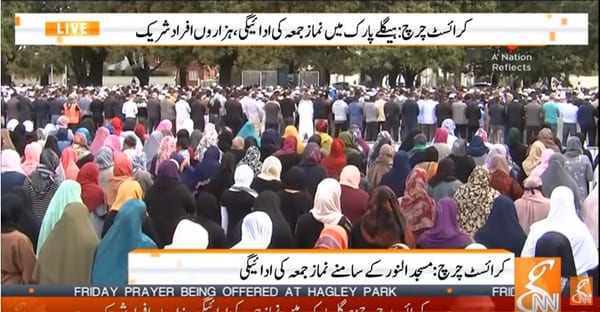Donald Trump is making headlines again for his puzzling comments. What does he mean when he talks about Russia, Obama hacking his phone, Syria, and North Korea? He seems to change his mind on a daily, if not hourly, basis. Does he have dementia, like Joe Scarborough of Morning Joe suggested? Or is he crazy like a fox, employing an offensive political strategy to keep world leaders, or heck, the whole human race, off balance?
His comments about the Civil War are another prominent example. In an interview with Salena Zito of Sirius XM’s POTUS channel, he praised Andrew Jackson over Abraham Lincoln. Trump stated that Andrew Jackson would have avoided the Civil War. It’s hard to imagine that Jackson, “an unapologetic slave owner,” would have done anything to end slavery. So, is Trump saying that Jackson would have avoided the Civil War by ignoring the evils of American slavery? As with almost everything Trump says, it’s hard to know what he means.
For example, what did Trump mean when he asked this during the interview –
People don’t realize, you know, the Civil War, if you think about it, why? People don’t ask that question, but why was there a Civil War? Why could that one not have been worked out?
Many have criticized Trump for not knowing basic history. Why did we fight the Civil War? Every fifth grader knows the Civil War was about slavery. We are told that the Civil War was a fight for the American ideal of “liberty and justice for all,” as our pledge of allegiance claims.
But America has failed in its ideal of “liberty and justice for all” from the very beginning. Of course, there are a few people who still want to avoid staring the sin of racism in the face by claiming the Civil War was about state’s rights. But we know it was about state’s rights to own black slaves. The underlying cause of the Civil War was the satanic mix of racism and slavery that fueled a significant portion of American culture.
We Need to Ask the Question: Could Nonviolence Have Solved Slavery?
But the question, “Why did the United States have to fight a Civil War to end slavery?” is a very good question. It took a gruesome war to “end” slavery in 1865 in the United States. But there are two important points to be made about Trump’s question. First, most other nations didn’t suffer a violent civil war to end slavery. Take England, for example. Their nonviolent process of ending slavery began in 1772, when Judge Lord Mansfield freed a slave. He ruled that English law didn’t support slavery.
The British Parliament outlawed the slave trade in 1807. The Royal Navy even suppressed slave trade in the Atlantic as they patrolled the seas of West Africa. It is estimated that, “Between 1807 and 1860, the Royal Navy, West Africa Squadron seized approximately 1600 ships involved in the slave trade and freed 150,000 Africans who were aboard these vessels.”
Like in the United States, slavery in England was an economic institution fueled by racism. Slave owners benefited economically from slavery. So, what did England do with the slave owners, who lived on the backs of slaves? If England simply ended slavery, slave owners would become resentful that their livelihoods were taken away. And many slave owners were culturally influential. In addition, recently revealed documents show that slave ownership in England “was far more common than has previously been presumed.”
We might say, “Ahh, screw the jerks!” But that would lead to further resentment and a potential civil war. England solved the problem of resentment by compensating slave owners with “the Sum of Twenty Millions Pounds Sterling.” Indeed, it feels … umm … I believe the technical term is “icky,” to buy off slave owners. But England paid them off because they knew the alternative could be as disastrous as a civil war.
Could the U.S. have solved slavery without a Civil War? It’s an important question that we should take more seriously. After all, the violence of the Civil War didn’t bring about “liberty and justice for all.” It only formed a new kind of slavery.
We Need to Ask the Question: Why Did the Civil War Fail?
Which leads me to my second point. Why did the Civil War fail? We praise the Civil War for providing freedom by ending slavery, but it didn’t. As historian David Swanson writes, the Civil War “murdered hundreds of thousands of people on both sides in order to accomplish the greater good of ending slavery. Slavery did not end.”
The 13th Amendment was supposed to end slavery, but it contained a loophole. It allowed enslavement of convicted felons. A criminal justice system emerged that allowed black men to be arrested for petty, minor, or made-up crimes. It didn’t provide liberty and justice for all. Freed by the 13th Amendment, black men were once again enslaved by the 13th Amendment. They were arrested and forced to pay a debt through hard labor in mines or mills. The post-Civil War slaves were worked to death. And once the American system killed them, it arrested more black men to enslave.
We glorify the Civil War for ending slavery, but the truth is, it didn’t end slavery. The larger culture turned a blind eye to the post-Civil War criminal justice system that continued to enslave black men. Tragically, our culture continues to turn a blind eye to the mass incarceration of black bodies that remains a racist tool of forced labor.
Why Could That One Not Have Been Worked Out?
Which brings me back to Trump’s question, why couldn’t we work out the Civil War?
Here’s your answer, President Trump. It’s because the United States has glorified war since the founding of our nation. We believe violence is the best way to solve our problems. Our glorification of the Civil War has enabled us to create a perpetual state of war. But if we’re honest about our history and our present, we’ll realize that the Civil War didn’t work. We couldn’t work it out because the American project, built upon the foundations of violence and its original sin of racism, doomed the American ideal of equality from the very beginning.
But there is hope. Ta Nehisi-Coates claims that America needs “a national reckoning that would lead to spiritual renewal.” He’s right. That spiritual renewal begins with Americans repenting of the violence, racism, and slavery of our past and present. Only then can we can hope for a better future where “liberty and justice for all” have a place in American culture.
Image: Copyright: astrozombie / 123RF Stock Photo
Stay in the loop! Like Teaching Nonviolent Atonement on Facebook!












